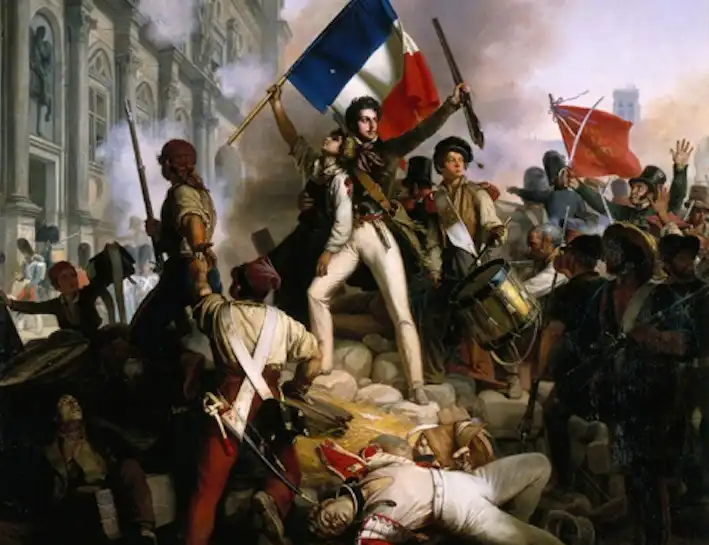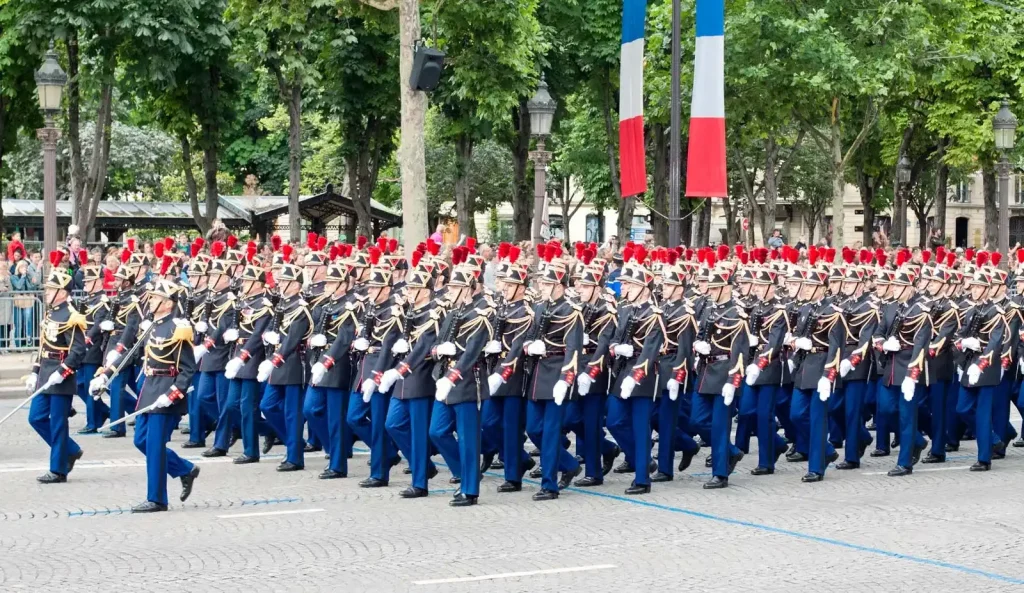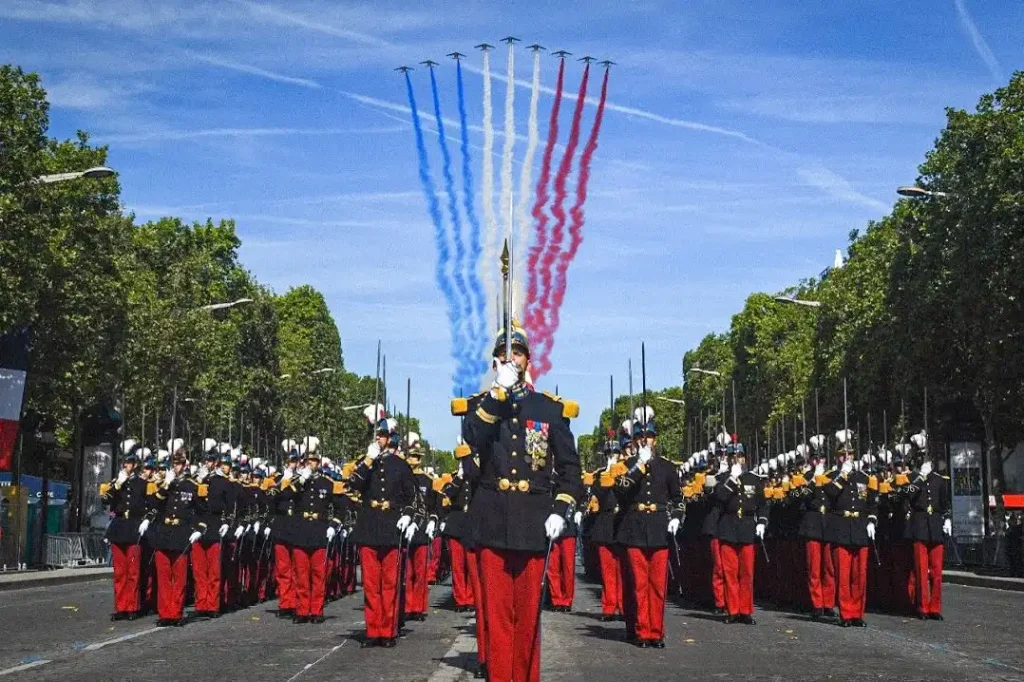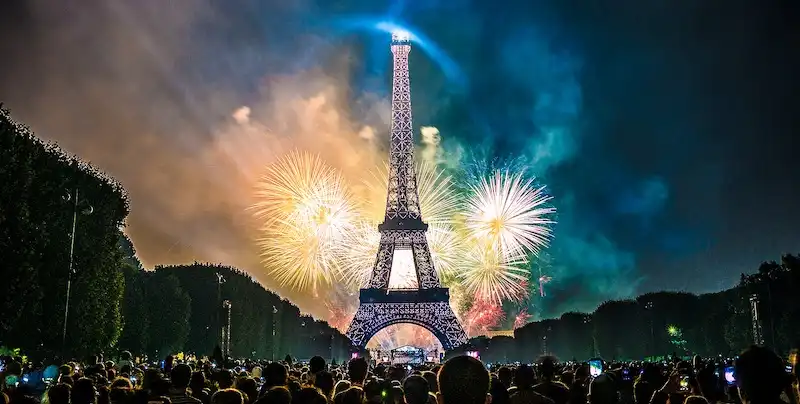Every year on the 14th of July, France celebrates Bastille Day, a national holiday commemorating the 1789 storming of the Bastille prison and the unity of the French people. This day marks an important event in French history and is celebrated with vibrant festivities all around the country. But what happened on this day, and why is it so significant?

The History Behind Bastille Day
The Bastille was a fortress in Paris, used as a state prison by the kings of France. By the late 18th century, it had become a symbol of the harsh rule of the monarchy and the oppression faced by the common people.

On July 14, 1789, a large crowd of Parisians, frustrated with high taxes, food shortages, and the absolute power of King Louis XVI, gathered outside the Bastille. They demanded the release of the political prisoners and access to the large stores of gunpowder kept there. Tensions escalated, and the crowd stormed the Bastille, overwhelming the guards and taking control of the fortress. This event marked the beginning of the French Revolution, a radical social and political change in France.
The French Revolution
The storming of the Bastille was a turning point that led to the French Revolution, a struggle against the inequalities of the feudal system and the absolute monarchy. The revolution resulted in the end of the monarchy, the rise of the French Republic, and the establishment of fundamental rights and freedoms for the people. It inspired other countries to fight for their own independence and democratic rights.

Bastille Day Celebrations
Bastille Day is celebrated with a grand military parade on the Champs-Élysées in Paris, attended by the President of France and other dignitaries. Soldiers, tanks, and military aircraft showcase the strength of the French armed forces. This tradition dates back to 1880 and is the oldest and largest regular military parade in Europe.

In the evening, spectacular fireworks light up the sky, especially around iconic landmarks like the Eiffel Tower. People gather in parks and public places to enjoy the dazzling display, which symbolises the spirit of freedom and unity.
Communal Festivities
Apart from the official celebrations, Bastille Day is a time for community festivities. Across France, towns and villages host parties, dances, and music concerts. People dress in the national colours of blue, white, and red and wave French flags to show their patriotism. Traditional French food, such as baguettes, cheese, and wine, is enjoyed during family gatherings and public feasts.

Firemen’s Balls
An interesting tradition on Bastille Day is the “Bals des pompiers” or Firemen’s Balls. Fire stations across the country open their doors to the public for dances and parties, creating a friendly and festive atmosphere. These events are very popular and often continue late into the night.

Bastille Day Around the World
Bastille Day is not only celebrated in France but also by French communities around the world. In cities like New York, London, and Sydney, French expatriates and Francophiles (people who love French culture) gather to celebrate with parades, parties, and cultural events. These international celebrations highlight the global influence of French culture and the values of liberty, equality, and fraternity.

Why Bastille Day Matters
Bastille Day is more than just a holiday; it is a reminder of the power of the people and the importance of fighting for justice and equality. The storming of the Bastille symbolises the end of oppression and the beginning of a society where everyone has rights and a voice. It is a day to reflect on the values of democracy and the sacrifices made by those who fought for freedom.

Fun Facts About Bastille Day
- Bastille Day in French: In France, Bastille Day is known as “La Fête Nationale” (The National Celebration) or simply “le 14 juillet” (the 14th of July).
- Eiffel Tower’s Role: The Eiffel Tower is a central part of Bastille Day celebrations, with a grand fireworks display launched from its base.
- The Original Bastille: Today, only a few stones remain from the original Bastille fortress. A monument known as the “Place de la Bastille” stands in its place.
- French National Anthem: The French national anthem, “La Marseillaise,” is sung during Bastille Day celebrations. It was written during the French Revolution and embodies the spirit of the fight for freedom.
- Global Celebrations: French embassies and consulates around the world also host events to celebrate Bastille Day, showcasing French culture and cuisine.

Conclusion
Bastille Day is a celebration of French history, culture, and the enduring spirit of the people. It is a day filled with joy, pride, and remembrance of the struggles that led to the freedoms enjoyed today. Whether through parades, fireworks, or community gatherings, Bastille Day brings people together to honour the values of liberty, equality, and fraternity.
For more interesting articles, please visit www.kidzherald.com




